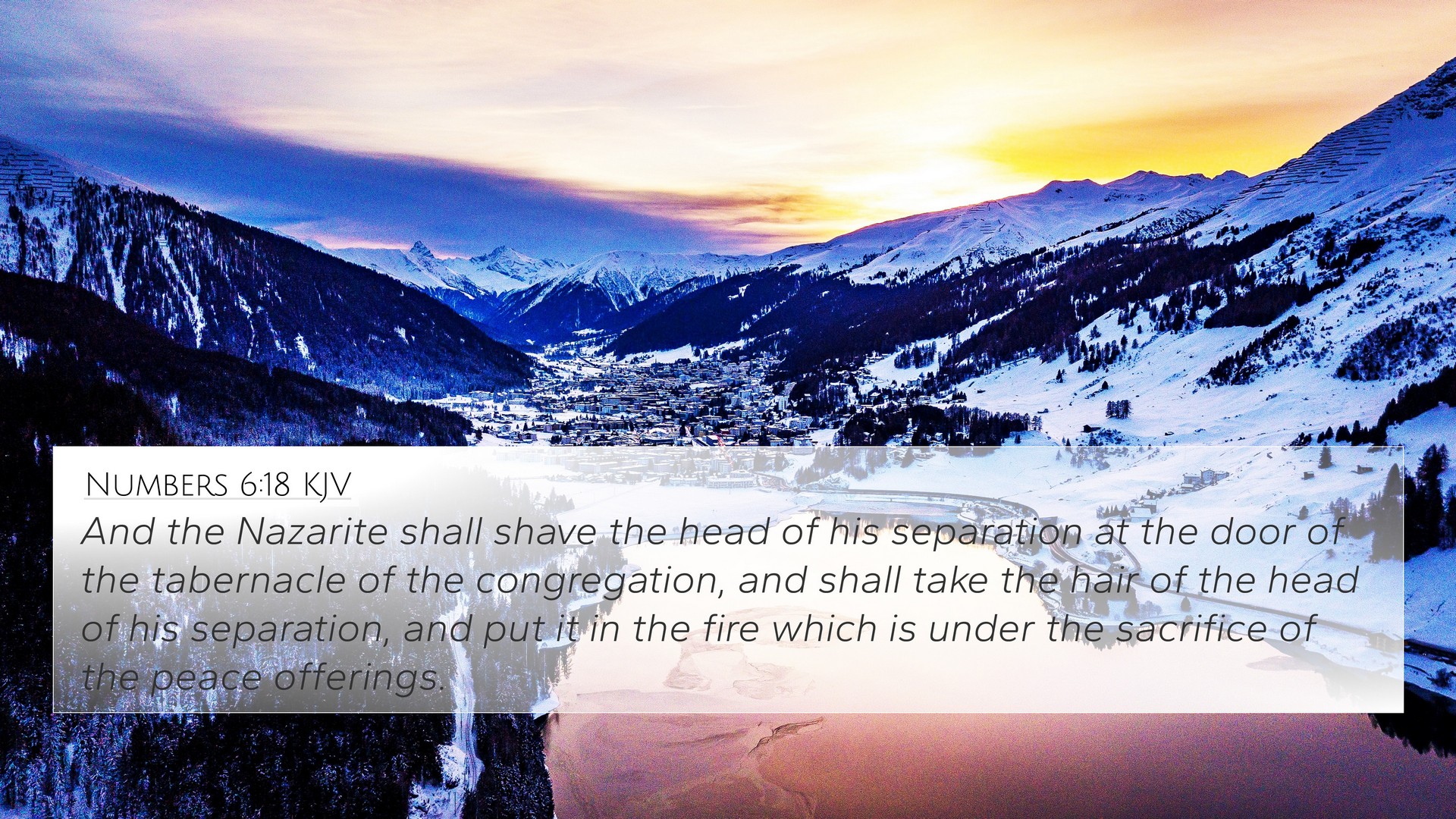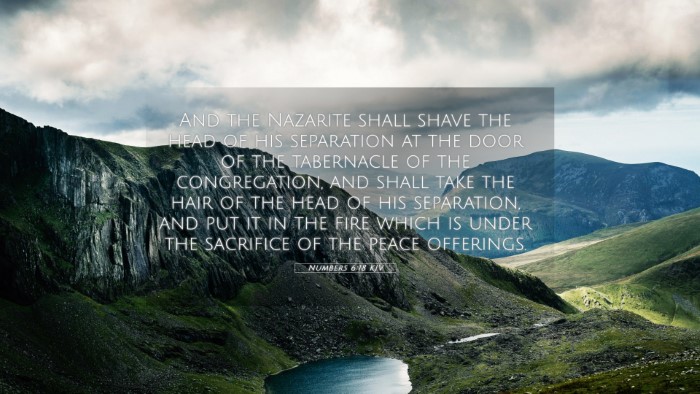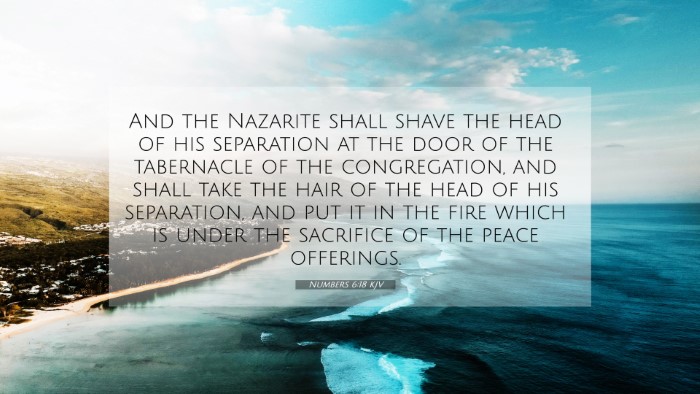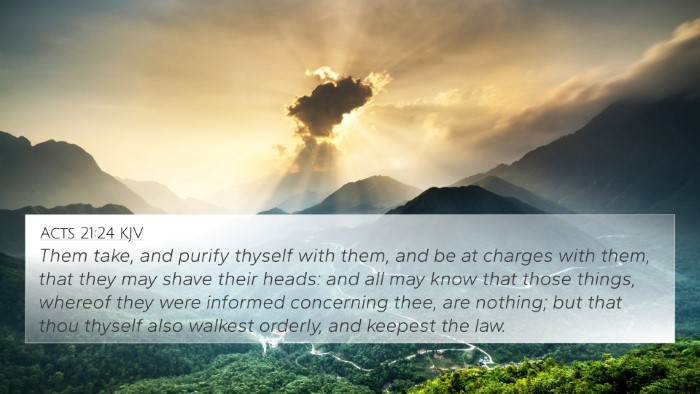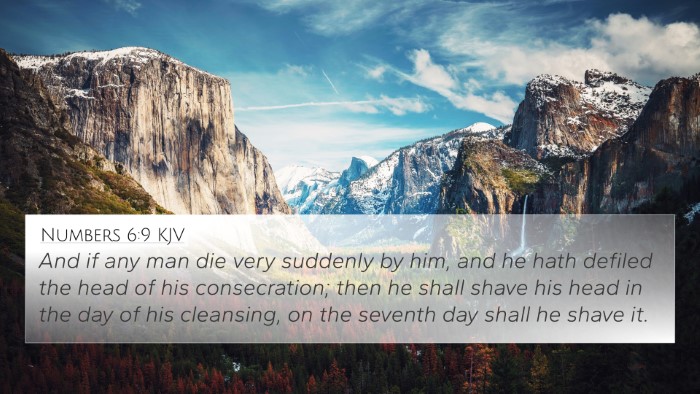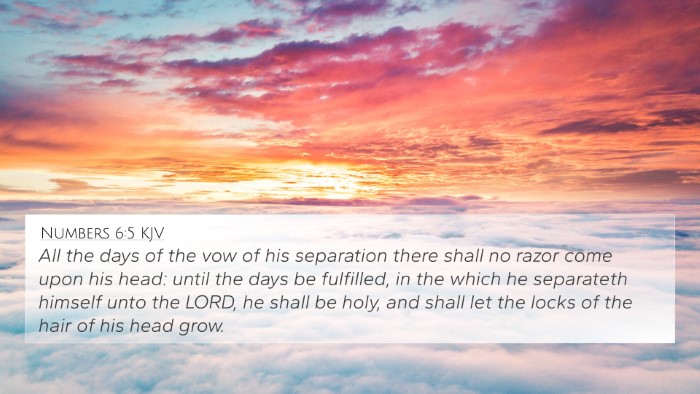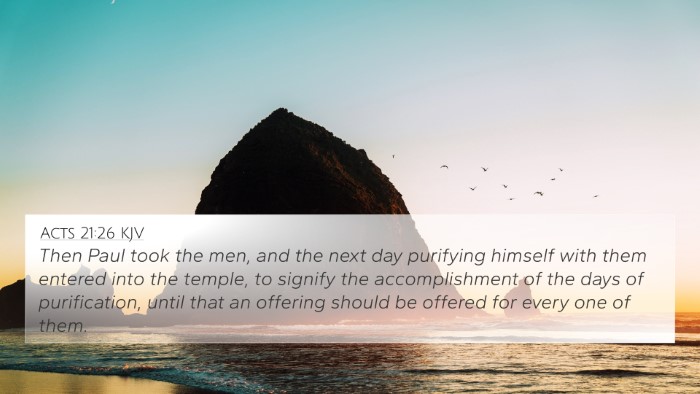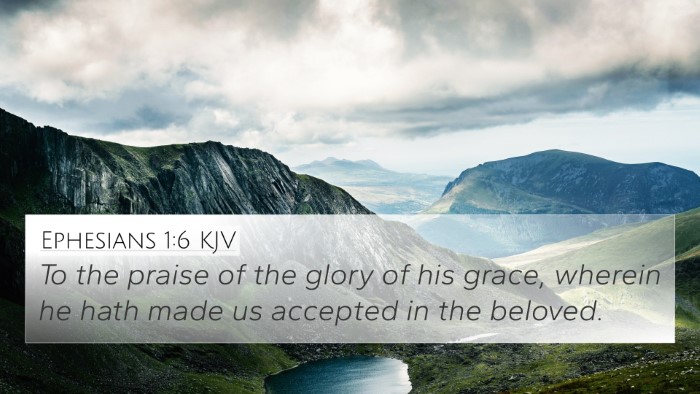Understanding Numbers 6:18
The verse Numbers 6:18 says, "And the Nazarite shall shave the head of his separation at the door of the tabernacle of the congregation, and shall take the hair of the head of his separation, and put it in the fire which is under the sacrifice of the peace offerings."
This verse is part of the Nazarite vow, which signifies a period of consecration and separation unto God. Here, the act of shaving the head marks the conclusion of the vow. The hair symbolizes the dedication and commitment of the individual to the Lord.
Commentary Insights
-
Matthew Henry: In his commentary, Matthew Henry emphasizes the symbolism of the hair. He explains that cutting the hair represents a significant act of submission and dedicated service to God. Henry draws parallels to how the hair of the Nazarite signifies the inner holiness and spiritual separation one has undertaken during their vow.
-
Albert Barnes: Barnes elucidates the importance of the Nazarite's hair, noting that it is a visible testimony of their dedication. He examines how this ritual connects the individual to communal worship through the offerings at the tabernacle, demonstrating unity with God's people.
-
Adam Clarke: Clarke points out the cultural significance of the shaving ritual, noting that it symbolizes a return to normalcy after an intense period of dedication. He suggests that this act is an invitation for others to join in recognizing the commitment made by the Nazarite.
Thematic Connections
The act of shaving the head and presenting the hair can be viewed as a deeply personal act of worship. The connections between numbers, rituals, and community in the Old Testament provide rich insights into understanding the nature of God's covenant with His people.
Cross-References for Numbers 6:18
- Judges 16:17: Delilah's relationship with Samson highlights the significance of hair in the context of Nazarite vows.
- 1 Samuel 1:11: Hannah's vow connects to the theme of dedicatory vows made unto God.
- Luke 1:15: John the Baptist is described as being filled with the Holy Spirit from birth, reflecting the spirit of the Nazarite.
- Acts 21:23-24: Paul's involvement in a Nazarite vow demonstrates the continuing significance of such rituals in the early church.
- 1 Corinthians 11:5: The New Testament explores the implications of head coverings and hair length in public worship.
- James 1:27: The concept of pure religion involves separation from the world, akin to the Nazarite's vow.
- Romans 12:1: The call for believers to present their bodies as a living sacrifice aligns with the Nazarite’s dedication.
Biblical Themes and Cross-Referencing
When studying Numbers 6:18, exploring the connections between this verse and others provides a fuller understanding of the practices and beliefs of the ancient Israelites. Cross-referencing biblical texts can enhance one’s study of spiritual dedication and the communal aspect of worship.
Tools for Effective Cross-Referencing
- Utilize a Bible concordance to identify related verses.
- Engage with a cross-reference Bible study for in-depth analysis.
- Familiarize yourself with a Bible cross-reference guide to track themes.
- Implement cross-referencing Bible study methods to uncover connections.
- Consult comprehensive Bible cross-reference materials for broader insights.
Inter-Biblical Dialogue
The connections between Old and New Testament practices around vows illuminate broader themes of faithfulness and commitment within scripture. For instance, the New Testament’s teachings often reveal deeper layers of what it means to be dedicated to God compared to the physical acts represented in the Old Testament.
Conclusion
Numbers 6:18, with its intricate details regarding the Nazarite vow, serves as a profound reminder of the importance of dedication to the Lord and the community of believers. By exploring its meanings and connections with other scripture, one can appreciate the rich tapestry of biblical themes woven throughout the Word of God.
